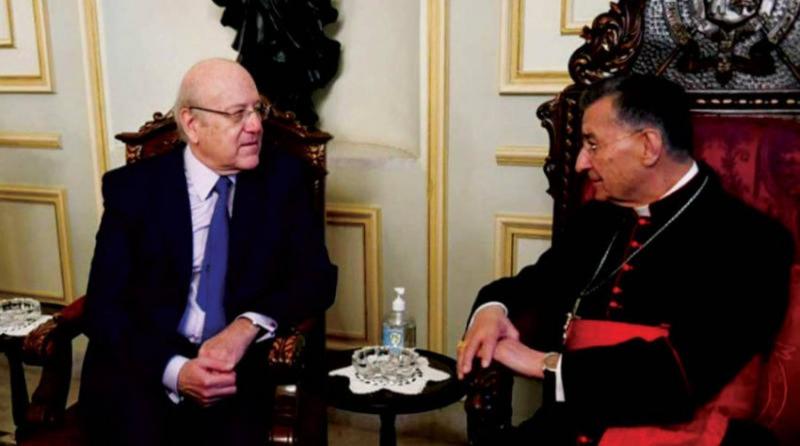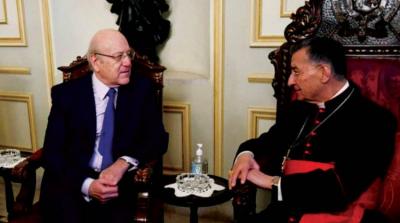This week in Lebanon can aptly be described as a week focused on Syrian displacement, marked by discussions, inquiries, and frequent warnings that the one billion euros from Europe could be a price for Lebanese officials to keep Syrians where they are. Following last Saturday's press conference by the head of the "Free Patriotic Movement," MP Gebran Bassil, who spoke about political and popular movements to assert that "Lebanon is not for sale and is not a border guard for Europe," a press conference will be held today by Lebanese Forces MP George Adwan in his capacity as head of the Administrative and Justice Committee in the Parliament. He will explain the "Lebanese Forces" position on the one billion euro package and the laws that the committee has been working on concerning the issue of the Syrian presence in Lebanon.
Simultaneously, there are reports of a roundtable set to take place at the Maronite Patriarchate in Bkerke, attended by the Minister of Social Affairs in the caretaker government, Hector Hajjar, who is expected to name many things directly regarding this file, noting that Hajjar has boycotted Cabinet sessions and is close to the "Free Patriotic Movement." His recent televised statement highlighted that "the funds coming from the European Union are not just for the Lebanese, as Prime Minister Mikati announced, but for the displaced as well."
Also notable was a statement from Minister of Displaced Persons Issam Sharafeddine, who participates in Cabinet sessions, indicating that "the one billion euros is a bribe and a means of silencing discussions about a fundamental solution for the displaced." He added that his critique of the government is its lack of political decision-making and failure to engage directly and on equal terms with the Syrian state, as influential figures in the Lebanese government succumb to Western dictates.
According to Minister Sharafeddine, "Lebanon has spent more than 40 billion dollars on the displaced over 13 years, while only 12 billion has come from United Nations organizations." In light of increasing pressure on caretaker Prime Minister Najib Mikati after Lebanon accepted the European package for four years, government sources confirmed to Kuwaiti news outlets that efforts are underway for a "unified European decision" to recognize Lebanon's demand that there are safe areas in Syria to which the displaced can return. This comes as the Prime Minister prepares a comprehensive report to present to the European Union at a meeting in Brussels at the end of this month.




